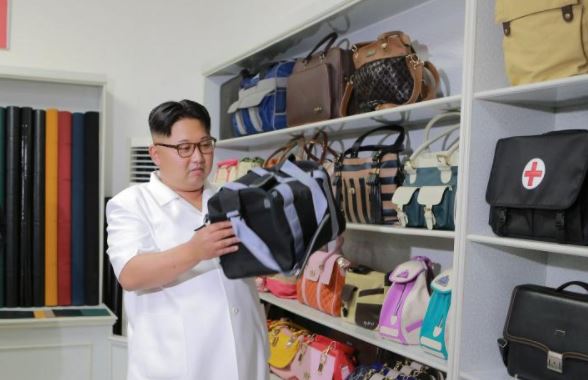
Jin Liangxiang, Senior Research Fellow, Shanghai Institute of Int'l Studies
Sep 26, 2017
Instead of repeating the same mistakes it made with North Korea’s nuclear program with Iran’s, the US should learn from them.

Ted Galen Carpenter, Senior Fellow, Randolph Bourne Institute
Sep 26, 2017
It is inaccurate to accuse Trump of breaking with decades of U.S. deterrence policy for his threat to totally destroy North Korea. He may have been more blunt than any of his predecessors since Eisenhower left office, but his warning of total destruction was merely an updated version of Ike’s massive retaliation doctrine—this time applied to North Korea instead of the Soviet Union.

Yasheng Huang, Professor, MIT’s Sloan School of Management
Sep 25, 2017
North Korea is one of the most insular countries in the world. That insularity is a curse for the long-suffering North Korean people, but an advantage for a sanction-based strategy, because only one country is needed to make it work: China.

Zhao Weibin, Researcher, PLA Academy of Military Science
Sep 21, 2017
The small Pacific country of Palau is a lynchpin in America’s security network. China can learn from this.

Martin Edwards, Associate Professor, Seton Hall University
Sep 21, 2017
Why the international community should not celebrate the unanimous vote to impose tougher sanctions on North Korea: Pyongyang is not without options in responding to the sanctions. It is essential that the international community comes to grips with some very uncomfortable truths about the next phase of the North Korean crisis.

Yun Sun, Director of the China Program and Co-director of the East Asia Program, Stimson Center
Sep 21, 2017
China is stuck between a rock and a hard place on North Korea, but any change in the country’s policy towards North Korea would require a fundamental change in China’s cost-benefit analysis of the current situation. More provocations by North Korea won’t change China’s policy, unless they are bound to lead to a war. Without understanding this crucial point, the world will continue to be disappointed by the insufficiency of the Chinese response.

Cui Lei, Research Fellow, China Institute of International Studies
Sep 19, 2017
Key stakeholders in the North Korean issue need to recognize that Pyongyang is and will remain a nuclear power. Negotiations can proceed from that basis.

Dan Steinbock, Founder, Difference Group
Sep 18, 2017
As the US policy strategy has failed in the Korean Peninsula, ominous scenarios cast a shadow over the region - and the chance for peace.

Zhou Bo, Senior Fellow, Center for International Security and Strategy, Tsinghua University
Sep 15, 2017
The US is spending naval resources it can ill-afford patrolling the Western Pacific. These patrols serve no useful purpose and only raise the risk of conflict with the Chinese Navy.

Luo Liang, Assistant Research Fellow, National Institute for South China Sea Studies
Sep 15, 2017
What you need to know about the Code of Conduct for the South China Sea.
Back to Top

- China-US Focus builds trust and understanding between the U.S. and China through open dialogue among thought leaders.
- Our Offerings
- Topics
- Videos
- Podcasts
- Columnists
- Research Reports
- Focus Digest
- Stay Connected
-
Thanks for signing up!
- Get the latest stories from China-US Focus weekly.